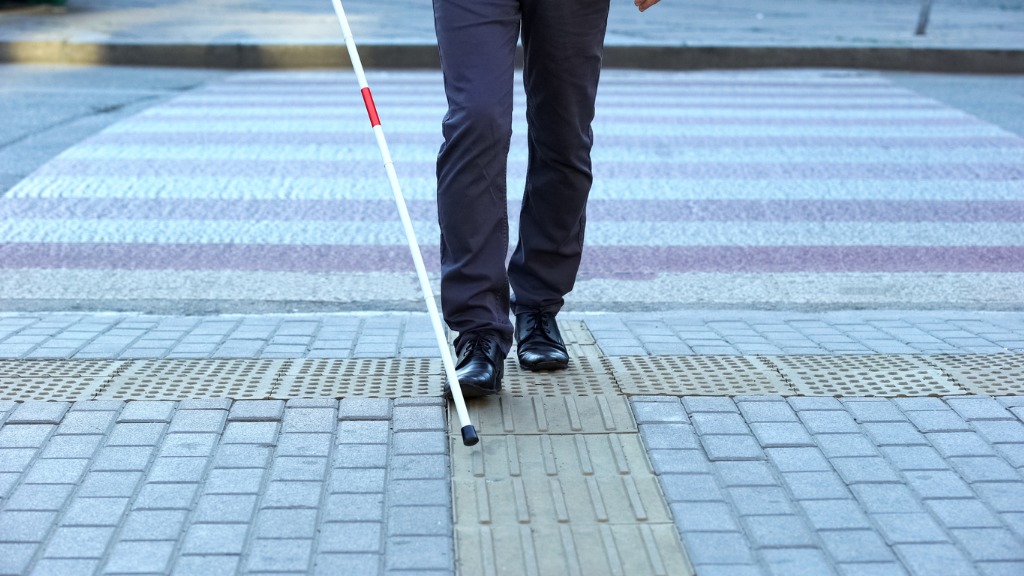UNSW partners with Guide Dogs to offer postgraduate qualification
UNSW Sydney has partnered with Guide Dogs NSW/ACT to offer a postgraduate qualification in Orientation and Mobility.
UNSW Sydney has partnered with Guide Dogs NSW/ACT to offer a postgraduate qualification in Orientation and Mobility.

UNSW and Guide Dogs NSW/ACT today announced a partnership that will give postgraduate students the opportunity to gain a graduate diploma qualification in the field of Orientation and Mobility.
Orientation and Mobility specialists are trained in teaching skills to people with blindness or low vision to help them move around their home or local area independently. This includes everything from wayfinding and using mobility aids such as white canes, to catching public transport. Training is designed to build confidence and independence in both familiar and new environments.
Associate Professor Sieu Khuu, Deputy Head of School at UNSW Optometry and Vision Science said UNSW is committed to forming partnerships with the ophthalmic industry and vision and eye-healthcare sector.
“We are excited to be partnering with Guide Dogs to offer such an interesting and rewarding qualification. The Orientation and Mobility graduate diploma is complementary to our existing educational programs and aligns with the School’s mission of advancing vision and eye health in society through world-class, innovative education and research,” A/Prof. Khuu said.
The Graduate Diploma of Orientation and Mobility will be undertaken online and supplemented by face-to-face practical requirements and Work Integrated Learning (WIL) to enable students to acquire skills in context. The WIL component can be arranged locally through appropriate agencies to ensure the course is available throughout Australia and Australasia.
Dale Cleaver, CEO of Guide Dogs NSW/ACT predicts an ongoing need for Orientation and Mobility Specialists in the future.
“Guide Dogs NSW/ACT’s Orientation and Mobility experts support more than 4,000 clients annually across the state. With an ageing population, there will be a constant need for employees with these specialist skills,” he said.
“This partnership with the UNSW School of Optometry and Vision Science is an important step in building strength in the ophthalmic industry and across the vision and eye health sector, which will be imperative in providing people the services they need.”
Ryan Jones, Orientation and Mobility Specialist at Guide Dogs NSW/ACT, said there were many rewarding aspects of working in the industry.
“The joy of a career in Orientation and Mobility is working with clients to understand what their life could look like with greater independence and freedom, then working with them to make that a reality,” he said.
“We’re likely to need more support in this field in years to come, which is why we’ve partnered with UNSW to make it a more accessible career path. For those looking at a career change, perhaps to something more fulfilling, it’s a great option. It’s incredibly rewarding to work with someone to regain their confidence to access their community.”
Orientation and Mobility practitioners work with both children and adults who have long-term low vision or blindness as well as those experiencing recent changes in their vision. Beyond being an important skill to develop for the entire low vision and blindness community, orientation and mobility skills are also an important foundation for people looking to work with a Guide Dog in the future as their primary mobility aid.
Orientation and Mobility is a profession that has applications across the disability, health and education sectors with highly transferable skills that can be applied to other roles in the vision rehabilitation/habilitation sector.
At present, there are no other openly available qualifications on offer in Australia that specifically address this unique profession, that have not required a prior employment placement.
For more information on the Graduate Diploma of Orientation and Mobility or to discuss your specific pathway into this postgraduate course, visit unsw.edu.au or contact UNSW on 1300 864 679.
Media enquiries:
Tara Harvey | 0484 002 021 | tharvey@keepleft.com.au
Yolande Hutchinson | 0420 845 023 | y.hutchinson@unsw.edu.au